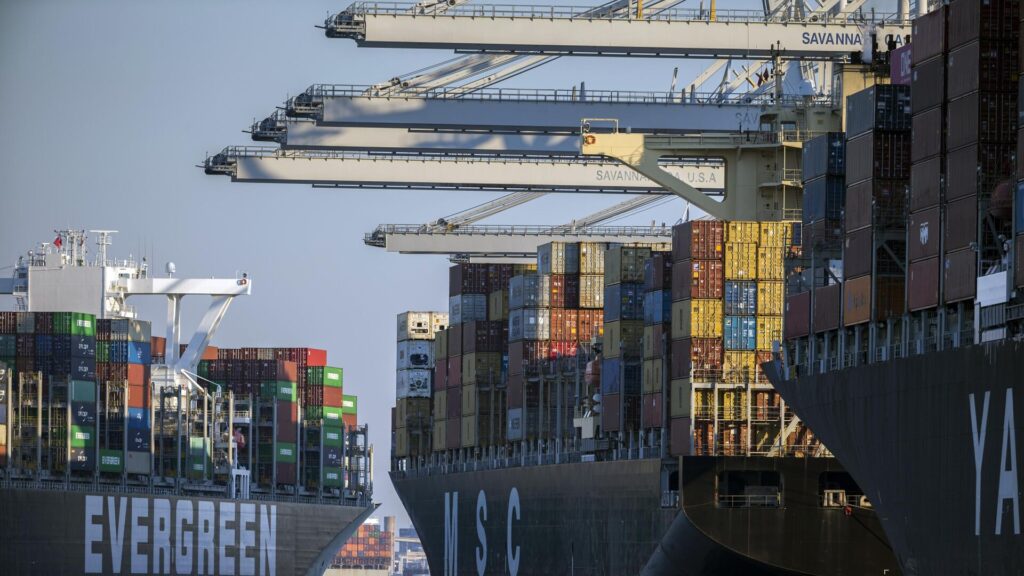Physical Address
60 Ekwema Cres, Layout 460281, Imo
Physical Address
60 Ekwema Cres, Layout 460281, Imo

South Africa is contemplating a formal complaint against the European Union’s (EU) newly implemented carbon border tax (CBT) to the World Trade Organization (WTO), which has ignited a global debate on environmental protectionism and trade fairness.
The South African government is scrutinizing the implications of the EU’s carbon tax on its exports and is seriously considering filing a dispute settlement case at the WTO to contest the legality of the carbon border tax.
The EU’s carbon border tax, introduced in 2023, mandates certain goods imported into the bloc to be taxed based on the carbon emissions produced during their manufacture.
This tax scheme is intended to level the playing field for European manufacturers who are subject to stricter environmental regulations and carbon pricing mechanisms within the EU.

The EU maintains that the carbon border tax is an essential tool to prevent what it terms “carbon leakage,” a situation where businesses relocate their operations to countries with less stringent environmental regulations to avoid carbon pricing burdens.
The South African government has voiced strong reservations about the EU’s carbon border tax, arguing that it unfairly punishes developing nations like South Africa that are striving to balance economic growth with environmental sustainability.
South Africa contends that the EU’s carbon border tax disproportionately targets developing countries with less developed economies and infrastructure, making it more challenging for these nations to compete in the European market.
South Africa is apprehensive that the EU’s carbon border tax could significantly impact its exports to the European Union.
Initial estimates suggest that the carbon border tax could result in a 4% reduction in South African exports to the EU, potentially jeopardizing thousands of jobs and hindering South Africa’s economic growth.
The South African government is particularly concerned about the impact of the carbon border tax on its exports of steel, iron, fertilizers, and chemicals, which are sectors with a relatively high carbon footprint.
In response to these concerns, the South African government is contemplating filing a dispute settlement case against the EU’s carbon border tax at the World Trade Organization (WTO).
The WTO is an intergovernmental organization that regulates international trade between nations.
A WTO dispute settlement case would allow South Africa to formally challenge the legality of the EU’s carbon border tax under the WTO’s existing trade agreements.
If South Africa pursues a WTO dispute settlement case, it is likely to argue that the EU’s carbon border tax contravenes WTO rules on non-discrimination and fair trade.
South Africa could contend that the carbon border tax unfairly disadvantages developing countries and creates an uneven playing field for exporters.
Additionally, South Africa might argue that the methodology for calculating the carbon border tax is not transparent and lacks accountability.
A WTO dispute settlement case against the EU’s carbon border tax could have significant ramifications for both South Africa and the EU.
If South Africa prevails in its case, the WTO could rule that the EU’s carbon border tax is incompatible with WTO trade rules, forcing the EU to modify or abolish the tax scheme.
Conversely, if the EU wins the case, it would set a precedent for other countries to implement similar carbon border tax measures.
Read More: EU Begins Investigations on Apple, Meta and Google
The South Africa-EU dispute over the carbon border tax exemplifies the wider debate on how to reconcile environmental protectionism with international trade.
Proponents of carbon border taxes argue that these measures are essential to compel countries to adopt stricter environmental regulations and combat climate change.
Opponents, on the other hand, contend that carbon border taxes are protectionist measures that unfairly target developing countries.
The South Africa-EU dispute over the carbon border tax is likely to be a protracted one.
If South Africa files a WTO dispute settlement case, it could take years for the WTO to issue a final ruling.
In the meantime, both South Africa and the EU will need to find ways to mitigate the potential negative consequences of the carbon border tax on their economies and trade relations.
Was this information useful? Drop a nice comment below. You can also check out other useful contents by following us on X/Twitter @siliconafritech, Instagram @ Siliconafricatech, or Facebook @ Silicon Africa.